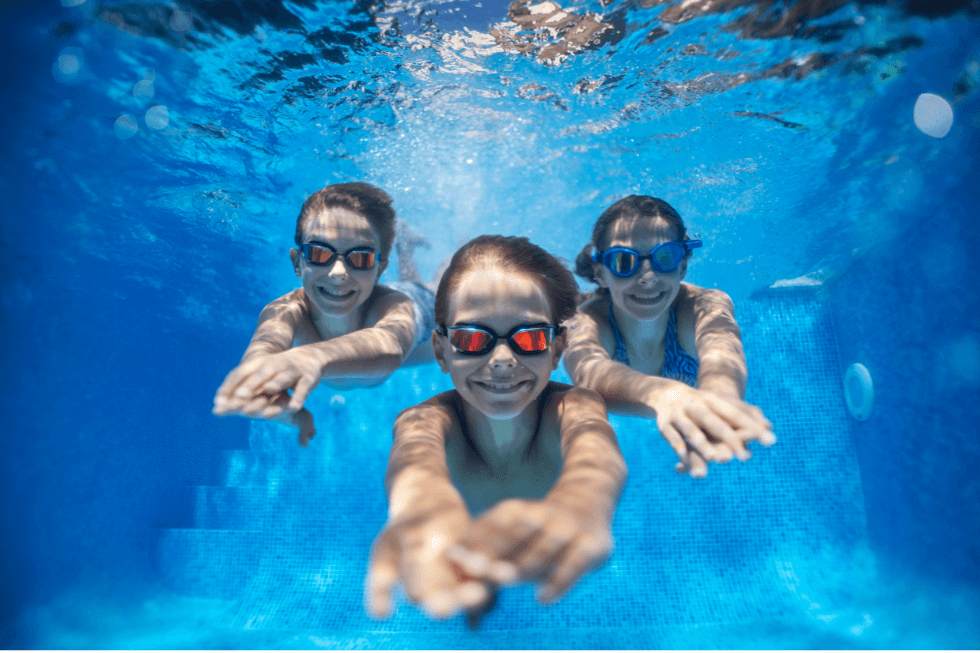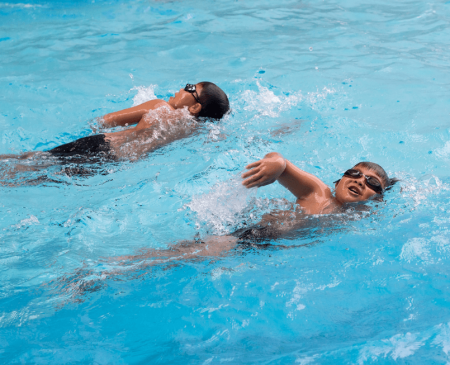Whether your child enjoys being in the water or not, their first swimming lesson might be a source of anxiety for them which you can ward off with a few tried and tested hacks.
Positivity around water
Firstly, in your communication with your child, be positive around water. Chat about your own experiences – if they’re positive. Be casual when you chat to your child about the pool. Don’t put any expectations on them, rather allow them to feel that being able to swim is an important skill and that you don’t expect them to succeed immediately, but that you’ll allow them to learn at their own pace.
Explain, Explain, Explain
Explain the immediate benefits of being able to swim well to your child. They can enjoy the pools on holidays. They can play and cool themselves down in water on a hot day. They can have fun daring their friends to race them in the pool. They can swim in the sea or lake, keep up and just enjoy the freedom of water.
If your child is slightly anxious around new situations and new people, allow them to get to know the pool before their first lessons, and if possible, meet their new teacher to say hi.
Get them comfortable
Get your child used to being in and around water. This might start with a playful bath at home, or some water play in the garden. Next, take them to your local pool before their first swimming lesson. This helps them get comfortable with the environment and takes out the element of surprise, it also helps them get a step ahead and become used to the water temperature and pool depth. When you are in the pool with your child, keep your attention on them, bring some fun water toys (a small ball or watering can is all it takes), and show them how much you enjoy being in the water with them.
Make them part of the process
If your child is apprehensive and enjoys having an active part in choosing the right swimming costume, goggles and hat, then take them out shopping with you. This gives them ownership of the process of going into the water and learning to swim. You don’t need to spend a lot of money. Your local sports shop should have some good budget options for swim gear.
Give fun facts
Maybe surprise them with a few little facts, such as – “Did you know that the human body is over 60% water?” or “Did you know that we need water for all our bodily functions?” or “Without water we could barely live for 3 days.” And “Did you know that we all came out of the water? The first life on earth was amphibian.” These true facts will help your child understand that being able to swim is an important and also quite natural skill for us humans.
Don’t cross boundaries
If you notice any anxiety around water in your child, don’t push on. Rather, try to help them understand what it is about water that scares them. Usually, this is putting your head under water or knowing they can’t swim. Reassure your child that their swim teacher is going to address these issues with them.
Try to address any anxieties with your swim teacher ahead of the first lesson. Your swim teacher is experienced, kind and gentle, and will guide you and your child in how best to address any potential anxieties.
Most importantly, enjoy the process and make sure you take your children to your local pool loads away from the lessons. Practice makes perfect … and is a lot of fun!
Finally, if your child is apprehensive or if you simply want to praise and spoil your child for making an effort, bring a cosy towel for after lesson, and have some water and a light healthy snack such as a banana and crackers for after the lesson.



